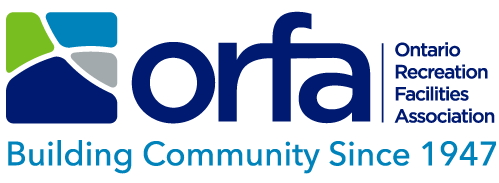- ORFA Home
- Resource Centre
- Technical Corner
- Managing The Risks From Above – Out of Sight, Out of Mind
Technical Corner
Managing The Risks From Above – Out of Sight, Out of Mind
November 15, 2022
The recreation industry has a collection of events that influence how future operations should perform. Too many times we try and remove the memory of these events with the belief that they were isolated situations that will most likely never be repeated. The ORFA and other similar organizations are the gatekeepers of this type of information. Part of our collective role is to pass along these operational experiences so that the lessons are not lost. Through time, there have been several significant scoreboard failures that impacted larger operations.
- On Nov. 16, 1996, shortly after the Buffalo Sabre's and the Boston Bruins finished their morning skate, the 20-ton Jumbotron scoreboard hanging over the playing surface crashed at centre ice without apparent cause or explanation as crews did routine maintenance. No one was injured. More - Torn-Down Tuesday: Marine Midland Arena Jumbotron crashes to the ice, 1996
- The score clock at Scotiabank Centre in Halifax sat in the middle of the stadium after a maintenance failure on October 30, 2019. Work was being done to the score clock when the maintenance equipment failed, causing the clock to swing. Three people were performing maintenance inside the clock at the time. More - Maintenance failure causes Halifax's Scotiabank Centre score clock to swing with workers inside | SaltWire
These failures are often viewed as having no impact on smaller operations. When in fact, they should signal to all facility staff the need to confirm that all items hanging above a recreational space remain in good, safe condition and that there are plans in place to monitor and maintain this equipment. The ORFA continues to raise awareness of the increasing risks associated with Canada’s aging inventory of recreational infrastructure. Many of these operations have exceeded the projected lifecycle of the original construction. Through the years, the buildings have had a variety of management that had different levels of understanding and skill sets associated with their responsibilities. The ORFA is significantly investing in designing and providing training that leads to professional accreditation that will help confirm that those who are in care and control of recreational public services understand the complexities based on the diversification of the types of operations. [More]
Fans, lights, speakers, clocks, and scoreboards are all considered important parts of a building operation. Facility managers must consider the residual impact on their facilities from changing weather patterns, aging, or lack of adequate air handling equipment that may reduce the original integrity of bolts, wires, or other forms of fasteners used to hold this kind of equipment in place. Extreme weather events will not only remove roofing and topple trees, but they will also weaken lights, cameras, scoreboards, netting and other items that have been installed to improve or enhance the recreational experience or operations.
These types of inspections were once difficult to perform but as technology has evolved, the introduction of drones with high resolution cameras has significantly improved a facilities manager’s ability to conduct comprehensive inspections of all indoor and outdoor hanging equipment. Collecting this data and inserting it into the operations Recreation Facility Asset Management (RFAM) plan is now considered a manager’s standard operational procedure. No one planned for or expected the scoreboards to fail on those fateful days. Facility management is asset management. Therefore, creating and following a set plan to operate and manage today’s recreational landscape is the only path towards success.
Comments and/or Questions may be directed to Terry Piche, CRFP, CIT and Director, Training and Research Development, Ontario Recreation Facilities Association
|
Note: The publisher, (Author(s)/General Editor(s)/Licensor(s)) and every person involved in the creation of this communication shall not be liable for any loss, injury, claim, liability or damage of any kind resulting from the use of or reliance on any information or material contained in this communication. While every effort has been made to ensure the accuracy of the contents of this communication, it is intended for information purposes only. When creating this communication, none of the publisher, the (Author(s)/General Editor(s)/Licensor(s)) or contributors were engaged in rendering legal or other professional advice. This communication should not be considered or relied upon as if it were such advice. If legal advice or expert assistance is required, the services of a competent professional should be sought and retained. The publisher and every person involved in the creation of this communication disclaim all liability in respect of the results of the any actions taken in reliance upon information contained in this communication and for any errors or omissions in the works. They expressly disclaim liability to any user of the work. |
